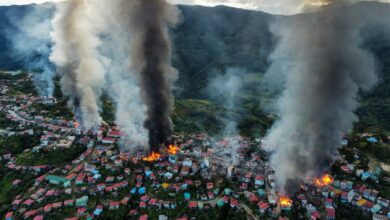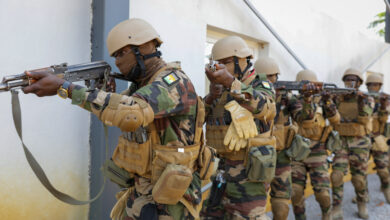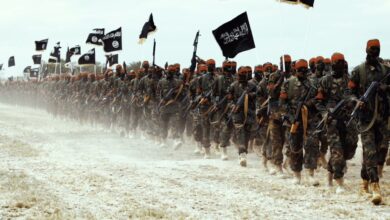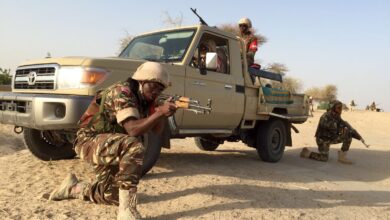Boko Haram fighters killed 21 people when they stormed into Kuda village in northeastern Nigeria and set it on fire, residents said on Tuesday.
Militants in four trucks flanked by gunmen on motorbikes swept into the village in northeast Nigeria’s Adamawa state late in the afternoon on Monday, April 29, firing as they came.
Villagers fled the attack, but returned on Tuesday to bury the dead left amid the charred wreckage of their homes.
“They opened fire on residents, killing 21 people,” said community leader Maina Ularamu. “They burnt several homes.”
Ularamu lost three brothers-in-law in the attack.
“Two-thirds of the village has been burnt,” said resident Paul Waramulu, speaking to AFP by telephone from the village, giving the same toll of those killed.
Waramulu said the fighters had looted food supplies before setting fire to buildings.
Many villagers were terrified and were still hiding in surrounding bush, and those who came back did so to give funerals to those killed, he added.
There was no immediate official response from the army or police.
Kuda is in the Madagali district of northern Adamawa state near the border with Borno state.
The incident is the latest in a long line of attacks by Boko Haram in the area. The area is a stronghold for fighters loyal to Abubakar Shekau and they operate from hideouts in the forests nearby, stealing supplies, killing villagers and attacking the security forces.
In March, eight people were killed and seven others injured near Gwoza in Borno state when a vehicle hit a roadside bomb. The vehicle was part of a civilian convoy under military escort.
The jihadist group known as Boko Haram began its decade-long bloody insurgency in northeastern Nigeria in 2009 but it has since spread into neighboring Niger, Chad and Cameroon, prompting a regional military response. More than 27,000 people have been killed and two million others displaced, sparking a dire humanitarian crisis in the region.
Boko Haram split into two factions in mid-2016. One, led by long-time leader Abubakar Shekau, is notorious for suicide bombings and indiscriminate killings of civilians. Shekau pledged allegiance to ISIS leader Abu Bakr Al-Baghdadi in March 2015, but ISIS central only gives formal backing to the other faction, which it calls Islamic State West Africa Province.
The ISWAP faction, which largely focuses on attacking military and government targets, was led by Abu Mus’ab Al-Barnawi, but last month, audio recordings revealed that ISIS appointed Abu Abdullah Idris bin Umar, also known as Ibn Umar al-Barnawi, as leader. ISIS has not yet made a public statement confirming the change.
With reporting from AFP












